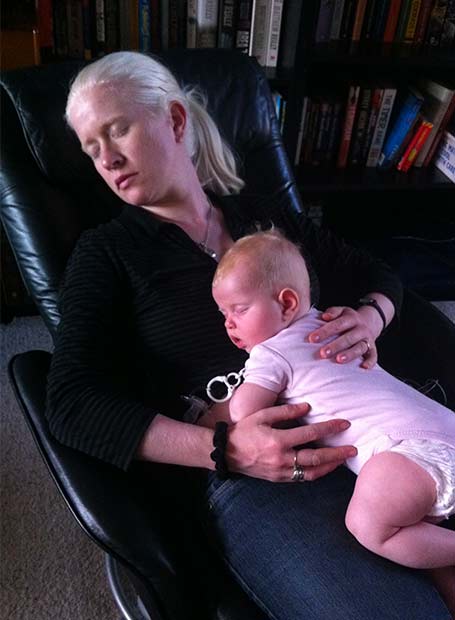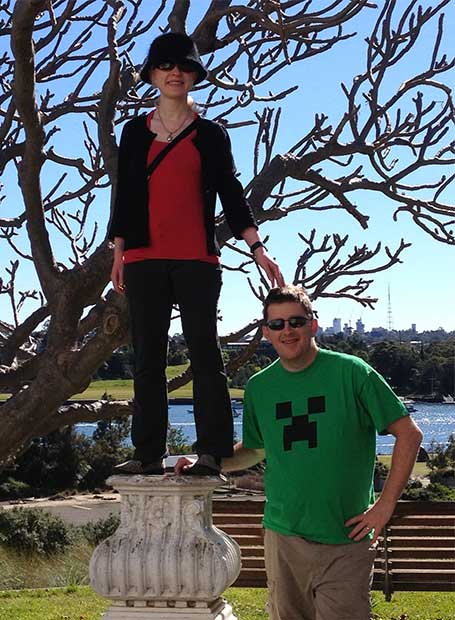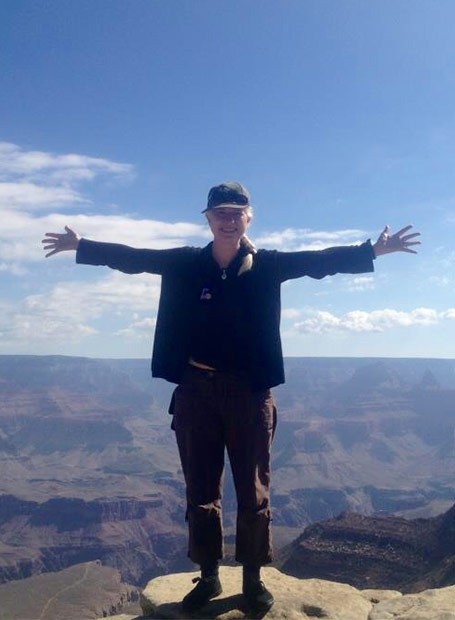Dr Shari Parker,
Medical Practitioner and Rehabilitation Physician, President of the World Albinism Alliance, and Secretary of the Albinism Fellowship of Australia
Growing up, Doctor Shari Parker wanted to prove to herself and the world that she wasn’t “different”. Hers is a gratifying journey to acceptance, and personal and professional achievement.
Meet Shari Parker

Early Years
My name is Shari Parker. I am a person with albinism. I have milky white hair and skin and am legally blind. I live in Sydney, Australia, home of the Sydney Opera House and the Harbour Bridge. I am married with three children and I am a specialist doctor.
I was fortunate to grow up in a family where I was accepted for who I was, albinism and all. I was encouraged to be the best that I could be. My older sister with albinism was mentor and source of courage and inspiration. My family’s acceptance of my albinism was more forthcoming than my own.
As a child, I grappled with what it meant to be an albino. Away from the nurturing home environment, I received my fair share of name calling, from “Casper” to “snow cone” and was told that I was “as blind as a bat”. Teachers told my parents that I shouldn’t be at a school with “normal children” and some parents forbade their children to play with me.
I didn’t resent these people, but turned their opinions internally. I felt fundamentally different, worse, less than human. I felt anger and resentment at being born with bad eyesight, appearing deathly pale. This internal angst was an important, though painful phase in the journey to my own personal understanding and acceptance, and these echoes sometimes still haunt me today.
Resolve
Eventually, my uncertainty morphed into a strong resolve not be defined by my condition. I became quite stubborn, opinionated and dogmatic. I decided that I was not going to let this condition, this disease, this genetic mutation, this disability, and others’ attitude to it and to me limit or define who I was.
Being extremely intolerant to the sun, I gravitated towards the library during school lunchtimes, and came to realise I was capable academically. I set my mind on a most unlikely career for someone who was legally blind, to become a Doctor.
The journey to becoming a specialist doctor with limited sight has not always been an easy one. But my other senses have been my greatest ally, along with my capacity for compassion, connection and understanding of the true personal impact of disease, injury and illness.
I graduated with honours and have been doctor for almost 15 years, completing specialist training in Rehabilitation Medicine, working with people with disabilities 6 years ago, topping Australasia in the clinical specialist examinations.
These days, life is busy and fulfilled. Between working as a consultant physician at a major tertiary hospital, teaching at two universities, and as a wife and mother to three young children, there are few spare moments in the day. I am privileged to work on a volunteer basis with both the local albinism support group, and in developing the World Albinism Alliance, bringing together albinism organisations from around the world to work together on mutual goals.


Human Rights Aspirations
Personal acceptance of albinism is an essential precursor to acceptance from the wider community, and this is something I continue to work on personally each day.
It is my sincerest hope and dream that each and every person with albinism across the world, regardless of heritage, socioeconomic status, cultural background, religion or gender may come to truly know and understand their albinism, that they will have the language to describe it to others and that they have the freedom to be who they are without fear and with great pride.
